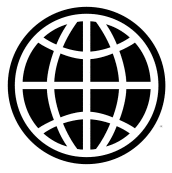The World Bank released a report titled ‘Papua New Guinea – Sanitation, Water Supply and Hygiene (WASH) in Urban Informal Settlements,' in their Social Research Findings and Recommendations series.
The report recommends developing a range of low cost on-site sanitation options and conducting pilots of them.
 1 October 2014: The World Bank released a report, titled ‘Papua New Guinea: Sanitation, Water Supply and Hygiene (WASH) in Urban Informal Settlements,’ in their Social Research Findings and Recommendations series.
1 October 2014: The World Bank released a report, titled ‘Papua New Guinea: Sanitation, Water Supply and Hygiene (WASH) in Urban Informal Settlements,’ in their Social Research Findings and Recommendations series.
The research, based primarily on interviews with settlement leaders and service providers, household surveys, observations of WASH facilities and a stakeholder workshop, aims to address the challenges of WASH in informal settlements, which emerged as a key priority in the development of national WASH policies.
Among the report’s recommendations are to: develop a range of low cost, on-site sanitation options and conduct pilots of them; develop community awareness; investigate financing options, including low interest loans; pilot suitable management options for improving water services; promote hand washing with soap; and involve women and girls in planning and decision making.
The report includes chapters on: approach and methodology; settlements and urbanization in context; research findings; sanitation and water analysis using SaniFOAM; WASH models and initiatives; and recommendations. [Publication: Papua New Guinea: Sanitation, WASH in Urban Informal Settlements]